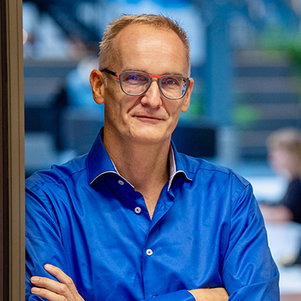The Responsible Sensing Lab opens in Amsterdam
Last week was the launch of the Responsible Sensing Lab - a collaboration between Amsterdam Institute for Advanced Metropolitan Solutions (AMS), the Digital City programme of Amsterdam and IDE. This initiative sees Professor Gerd Kortuem and PhD candidate Kars Alfrink exploring how social values can be integrated in the design of sensing systems in public space.
This lab’s mission is to explore how to integrate social values in the design of sensing systems in the public space. It will be a testbed for conducting rigorous, transparent and replicable research on how smart technologies placed in public spaces can be designed to create “responsible” digital cities.
The challenges of urban smart technologies
The complex infrastructure of smart technologies set up by City of Amsterdam help the municipality in measuring, analysing and defining urban processes such as waste management, mobility flows and the management of its urban assets. While on the one hand these innovations can improve quality of life, safety and sustainability, on the other hand there are potential consequences when it comes to the autonomy, privacy, inclusiveness and empowerment of citizens.
In the Responsible Sensing Lab, academics and digital systems practitioners connect and work towards more responsible ways of sensing in the public space, establishing teams of multidisciplinary stakeholders to address this challenge from all points of view.
IDE's contribution
Opening the launch event, an online interactive session was livestreamed from the NEMO Science Museum. IDE PhD candidate Kars Alfrink co-hosted a workshop entitled “Designing Citizen Interactions for Urban Sensing Systems”. Professor Gerd Kortuem, Principal Investigator of the Responsible Sensible Lab, also took part in the event as a member of the panel discussion “The Influence of corona on surveillance in Amsterdam”.
Professor Gerd Kortuem commented: “Our recent research has pointed out that ‘official’ actors primarily see transparency as a means to ensure adoption, while citizens see transparency as a starting point for voicing their concerns and influencing the purpose and use of smart technology. This leads us to conclude that we - as designers of these systems - need to aim to design these systems for engagement as well as pushback by society.”
In case you missed it, you can watch the full event online.


